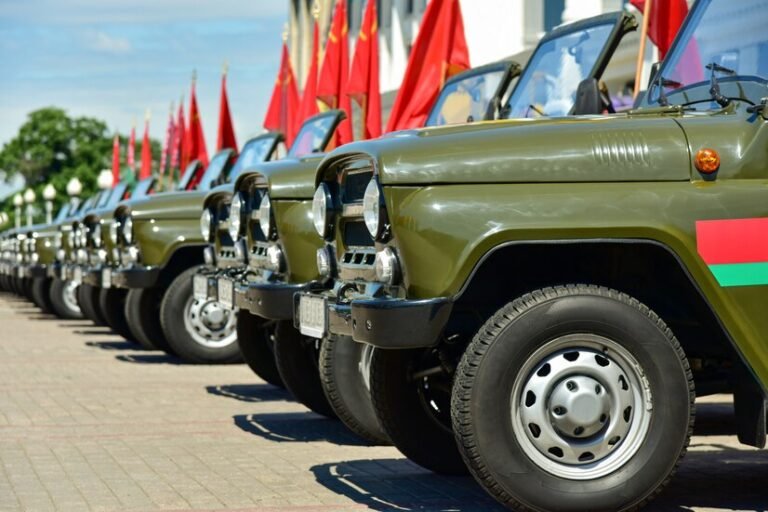The Carlist Brigades played a pivotal role in the Spanish Civil War, representing one of the most significant military factions in the conflict. Their legacy, intertwined with Spain’s complex political and military history, left a deep mark on the nation’s identity. In this article, we will delve into the history of the Carlist Brigades, their origins, their involvement in the Spanish Civil War, and the lasting impact they left on Spain’s political landscape.
What Were the Carlist Brigades?
The Carlist Brigades were a military force primarily composed of supporters of the Carlist movement, which had its roots in the early 19th century in Spain. The movement advocated for the legitimist claim to the Spanish throne by Carlos V, a royal rival to the established Bourbon monarchy. Over the years, the Carlists became known for their strong conservative, monarchist, and religious ideologies, often clashing with liberal forces within Spain.
In the context of the Spanish Civil War (1936-1939), the Carlist Brigades formed a key part of the Nationalist forces, which were led by General Francisco Franco. Their involvement in the war was driven by their loyalty to traditional Catholic values and their opposition to the secular and left-wing Republican forces.
The Origins of the Carlist Movement
The Carlist movement originated in the 1830s, when Spain was embroiled in a series of dynastic wars known as the Carlist Wars. These wars were fought between supporters of Carlos V (the Carlists) and the supporters of Isabella II, the reigning Bourbon monarch. The Carlists, who were mainly rural, conservative, and Catholic, believed that Carlos V was the legitimate heir to the throne due to the disputed succession after the death of Ferdinand VII. The Carlist Wars left a lasting legacy on Spanish politics, with the Carlist movement continuing to advocate for a traditional monarchy, Catholic values, and decentralization of power.
Over the decades, the Carlist movement morphed into a more political and military faction, maintaining their position in Spanish society, particularly among the rural and conservative sectors. By the time of the Spanish Civil War, the Carlists had organized themselves into brigades that fought alongside the forces of Franco against the Republicans.
Carlist Brigades in the Spanish Civil War
The Carlist Brigades were a central component of the Nationalist forces during the Spanish Civil War. These brigades were formed out of the remnants of Carlist militias that had been active in previous conflicts, particularly the Carlist Wars. During the Civil War, the Carlist Brigades fought fiercely on the side of Franco’s Nationalists, who sought to overthrow the Spanish Republic and establish a fascist, military dictatorship.
The Carlists’ involvement was essential for Franco’s victory. Their brigades played a significant role in many key battles throughout the conflict. These included the Battle of the Ebro, where they faced off against Republican forces, and other crucial moments that tipped the balance in favor of the Nationalists.
Despite their vital role, the Carlist Brigades did not have the same level of unity as other military factions within the Nationalist camp. The Carlists were often in tension with other groups, including the Falangists, who were loyal to Franco, and the more traditional military commanders. This internal tension, however, did not prevent them from fighting effectively during the war.
Ideology and the Carlist Brigades
The Carlist Brigades were not merely a military force—they were also an ideological one. The Carlist ideology was deeply rooted in monarchism, traditional Catholicism, and anti-liberalism. For the Carlists, the Spanish Civil War was not just a battle for power; it was a religious and moral crusade to restore Spain to what they saw as its rightful order.
This ideology made the Carlist Brigades unique within the broader Nationalist movement. While Franco’s faction included a range of groups from monarchists to fascists, the Carlists remained staunchly loyal to their vision of a traditional monarchy. They were among the most devoutly Catholic factions in the war, and they viewed the struggle as one of defending Spain’s Christian values against the perceived threats of atheism, secularism, and communism represented by the Republicans.
The Post-War Impact of the Carlist Brigades
After the Spanish Civil War ended in 1939 with Franco’s victory, the Carlist Brigades found themselves in a complex position. Franco’s Nationalist government did not fully embrace the Carlist ideology. While the Carlists had been crucial in helping Franco win the war, Franco himself was more inclined toward authoritarianism and centralization of power, which conflicted with the decentralized, regionalist nature of the Carlist movement.
Despite this, many Carlists continued to support Franco’s regime, though some of the movement’s leaders grew disillusioned with his lack of commitment to a traditional monarchy. Over time, the Carlist movement weakened, as it was overshadowed by the centralizing policies of Franco’s dictatorship.
However, the Carlists’ legacy endured. The Carlist Brigades were celebrated by some as heroes of the Nationalist cause, and their ideology continued to have influence within Spanish political and social life. In particular, their focus on regional autonomy and Catholic values persisted as an important theme in Spanish politics, especially in areas such as the Basque Country, where the Carlists had strong historical roots.
The Carlist Brigades and the Basque Country
One of the most significant regions where the Carlist Brigades had a strong influence was the Basque Country. The Carlist movement had deep roots in this area, and the Carlist Brigades were especially important in Basque regions during the Spanish Civil War. The Basque Country had long been a stronghold of Carlist support, largely due to the region’s traditionalist, Catholic, and autonomous sentiments.
During the Spanish Civil War, many Basque Carlists joined the Carlist Brigades, and their efforts in the war were integral to the Nationalist cause. After the war, the Carlists in the Basque Country faced a difficult reality. While Franco’s victory allowed them to maintain some political relevance, the centralizing nature of Franco’s regime diminished the region’s autonomy, which had been a central tenet of the Carlist movement. Despite this, Carlist sentiment remained strong in the Basque Country, and the legacy of the Carlist Brigades continued to influence the region’s political landscape.
The Decline of the Carlist Movement
In the years following Franco’s death in 1975, Spain underwent significant political changes. The country transitioned from a dictatorship to a constitutional monarchy, and political power shifted toward democracy. During this time, the Carlist movement experienced a gradual decline. The political landscape of Spain had evolved beyond the Carlist ideals, and the movement’s influence waned.
Nevertheless, Carlist factions still exist today, though they are no longer a significant force in Spanish politics. The modern Carlists continue to advocate for a return to a traditional monarchy and regional autonomy, but their influence is limited compared to the past. The legacy of the Carlist Brigades, however, remains an important part of Spanish history, particularly in the context of the Spanish Civil War and its aftermath.
Conclusion
The Carlist Brigades were a significant military force during the Spanish Civil War, embodying the deeply conservative, monarchist, and Catholic ideals of the Carlist movement. Their involvement in the war helped secure Franco’s victory, although their legacy was marked by tension with other factions within the Nationalist cause. Today, the Carlist Brigades are remembered as part of Spain’s turbulent history, and their influence continues to shape the political and cultural identity of regions like the Basque Country. Though the movement itself has faded, the Carlist Brigades remain an important symbol of Spain’s complex political heritage.
FAQs
What were the Carlist Brigades?
The Carlist Brigades were military units formed by supporters of the Carlist movement during the Spanish Civil War. They fought alongside Franco’s Nationalists, advocating for monarchism and Catholicism.
Why were the Carlist Brigades important in the Spanish Civil War?
The Carlist Brigades played a crucial role in Franco’s Nationalist forces, contributing to their victory. They were essential in many key battles and represented a deeply conservative and religious faction.
What was the Carlist ideology?
The Carlist ideology was based on monarchism, Catholicism, and anti-liberalism. Carlists advocated for a traditional monarchy and the decentralization of power in Spain.
Did the Carlist Brigades have a lasting impact?
Yes, the Carlist Brigades’ legacy continues to influence Spain, particularly in the Basque Country. Their advocacy for regional autonomy and Catholic values remains a significant part of Spain’s political history.
Are the Carlists still active today?
While the Carlist movement has significantly declined, factions still exist, advocating for a return to a traditional monarchy and regional autonomy, although they no longer hold substantial political power.

